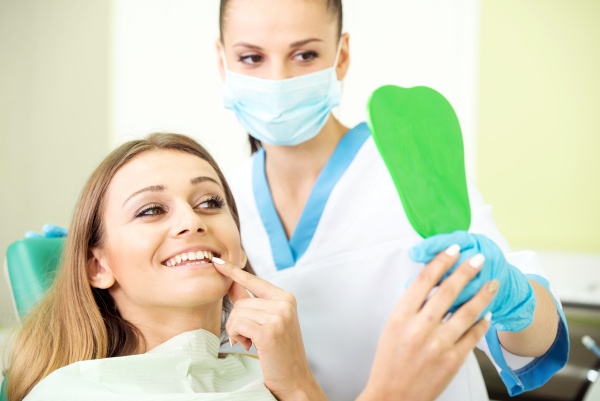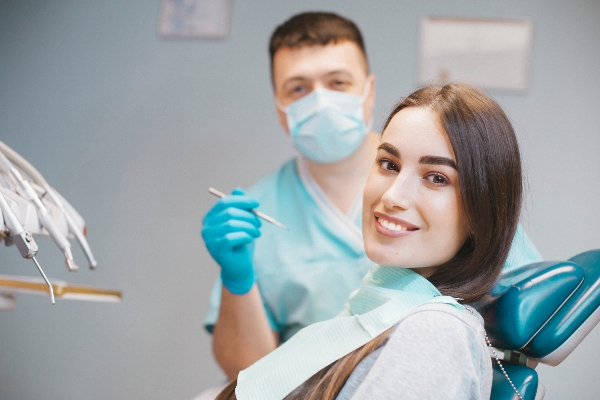How to Avoid Getting Periodontal Disease

Periodontal disease is an inflammatory condition caused by the accumulation of bacterial plaque on the gum and tooth roots. The plaque creates toxins that may later cause the gums to recede from the teeth, weakening the roots and causing eventual tooth loss.
According to the Centers for Disease Control and Prevention (CDC), over 50% of Americans have a form of gum disease, with many of them ending up losing one or more teeth to the condition. In fact, periodontal disease is the highest cause of tooth loss in adults. According to the CDC, people above 65 are at a higher risk of the disease.
Nobody is ever excited about the thought of losing a tooth, and fortunately, patients can take proactive measures to prevent the occurrence of gum disease and keep their mouth healthy.
How to prevent periodontal disease
Anyone who wants to avoid getting gum disease can do many essential things to reduce their risk of getting the disease. The following are some of the most effective ways to prevent the disease.
Brush twice a day
Experts recommend brushing at least twice daily. It is ideal to use fluoride toothpaste (to remineralize the enamel), and a soft-bristled toothbrush flexible enough to reach into the crevices and corners of the mouth, and clean each tooth at about a 45-degree angle. When brushing, the tongue should be cleaned thoroughly, since it always harbors plaque-forming bacteria.
Floss daily
Flossing at least once a day is essential, especially before going to bed and after the last meal or snack of the day. Patients should avoid flossing too hard to avoid damaging the gums. Flossing should be done by pulling the string along the sides of the teeth to remove the plaque or food debris that are inaccessible to a toothbrush. Interdental brushes and picks can reach hidden spaces and remove dirt from the gums, as well.
Antiseptic mouthwash
Mouthwash will help free up any remaining food debris after brushing and flossing to flush them out, as well as reduce bacteria and fight plaque accumulation on the teeth.
Good nutrition
It is advisable to reduce sugar and carbs consumption. Instead, plenty of fruits and vegetables should be part of the diet, especially apples and carrots that can help scrape plaque from the teeth. Vitamin supplements can also help, as the right nutrients make the gum stronger.
Stop some meds
Drugs such as aspirin cause blood thinning and could cause gum bleeding. Patients can consult with their doctor to know if they can get a replacement drug.
Regular dental checkups
The American Dental Association advises that patients go for two dental checkups per year. During such appointments, the dentist will be able to detect signs of periodontal disease and recommend treatment. They will also perform a deep cleaning to get rid of plaque. Patients who are more susceptible to periodontal disease will need more frequent visits, sometimes every three months.
Final note
If you detect any sign of periodontal disease, make sure you contact your dentist as soon as possible for treatment. The best advice is to take oral care seriously and prevent the occurrence of the disease entirely.
Request an appointment here: https://www.mysaratogadentist.com or call My Saratoga Dentist PLLC at (518) 675-3094 for an appointment in our Saratoga Springs office.
Check out what others are saying about our services on Yelp: Read our Yelp reviews.
Recent Posts
Seeing your dentist for a dental restoration can be nerve-racking if you do not know what to expect. Some procedures are invasive, while others are not. Knowing more about the different processes can help you make informed decisions about your procedure. Here are five dental restoration FAQs you can ask your dentist.This dental restoration refers…
Getting the right dental restoration can improve your appearance and dental health. Your dentist will discuss the possible procedures that will fit your needs. Knowing more about these treatments can help you prepare for your next visit. Here are the common dental restoration procedures available.These restorations can be tooth-colored porcelain, gold, or composite material. This…
Receding gums are a condition in which the gum tissue pulls away from the teeth, exposing the roots, and it may harm the underlying health of your teeth and the appearance of your smile as a whole. Healthy gums are essential for supporting your teeth and lowering the risk of infection and tooth loss.Even though…
A full mouth reconstruction restores oral health, functionality, and aesthetics for patients with extensive dental issues. This process combines multiple restorative, cosmetic, and sometimes surgical procedures to address concerns such as missing teeth, decay, gum disease, or bite misalignment. No matter the issue, a full mouth reconstruction is tailored to the individual's unique needs, offering…


